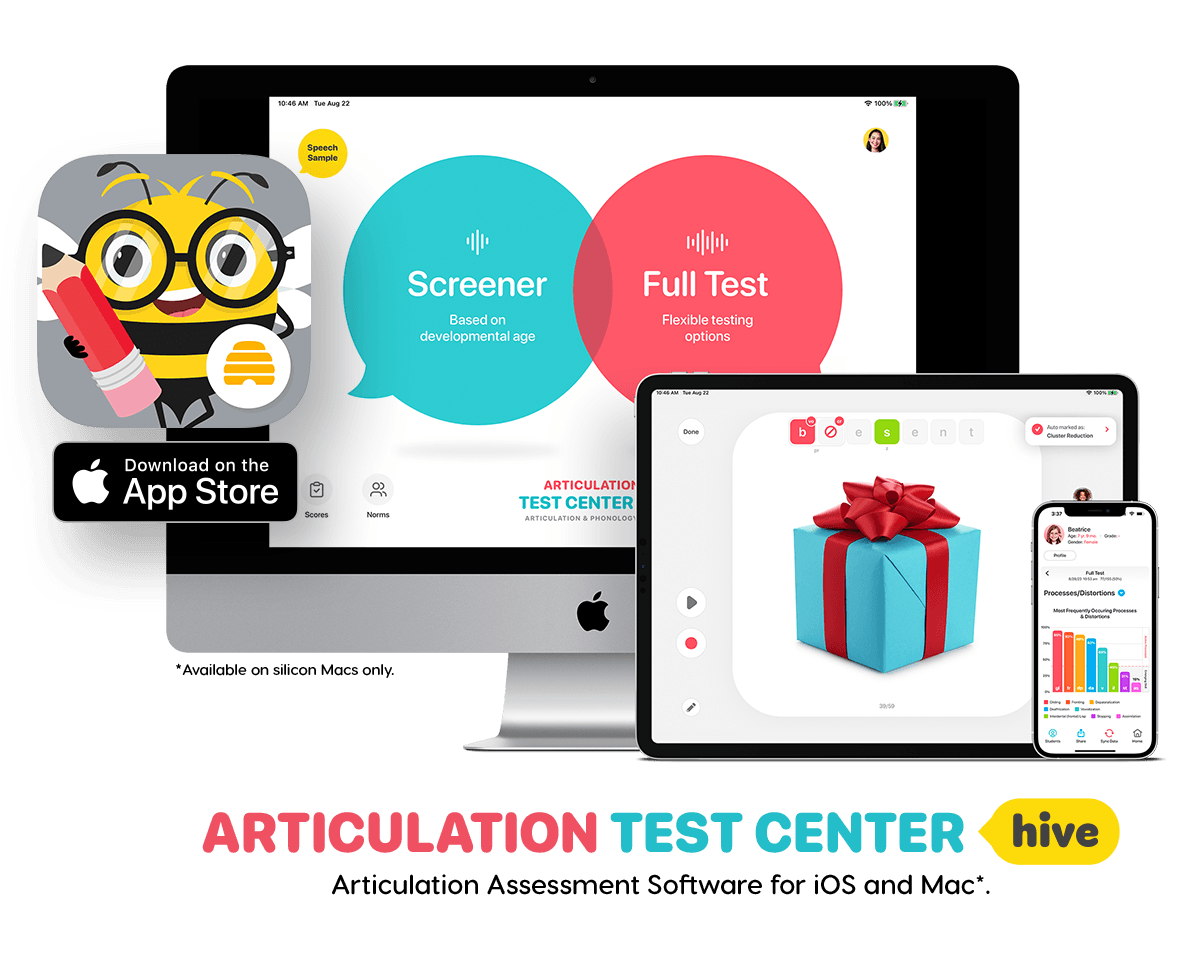
Speech Intelligibility
Infographic
This FREE 2-page Speech Intelligibility Infographic from Little Bee Speech outlines how speech intelligibility is measured, intelligibility expectations based on age, and how to know when speech intelligibility is delayed.
Size: 8.5" x 11" (PDF)
What is Speech Intelligibility and how is it measured?
Speech intelligibility is how well a person is understood by listeners. “Listener” can be defined as a parent, friend, teacher or Speech-Language Pathologist (SLP). Speech Intelligibility is one of the factors SLPs use to determine if a child has a speech delay and if intervention is recommended.
When measuring speech intelligibility there are subjective measures and objective measures. Subjective measures of intelligibility are typically based on reports from familiar listeners (usually the parents), with the aid of context clues. Objective measures are based on the assessment of unfamiliar (naive) listeners, with no context clues.

Why is poor speech intelligibility a concern?
Poor speech intelligibility can cause misunderstanding, frustration, and a decreased desire to communicate. It can also have a negative effect on a child’s success at school, friendships with other children, and on their overall well-being.
“Delayed emergence of intelligibility, or frankly unintelligible speech, often signify the presence of a major disturbance of language, overall cognitive development, or hearing.”
-Coplan & Gleason, 1988
With such a significant impact on a child’s ability to communicate, assessing speech intelligibility should be an essential part of every SLPs assessment procedures. This FREE resource can help SLPs know which research to reference when determining intelligibility expectations, and how to know when speech intelligibility is considered delayed. However, given the high variability in the expected rate of intelligibility, SLPs should use their professional judgement when considering the need for intervention.

Speech Intelligibility
Infographic
This FREE 2-page Speech Intelligibility Infographic outlines how speech intelligibility is measured, intelligibility expectations based on age, and how to know when speech intelligibility is delayed.
Size: 8.5" x 11" (PDF)
In addition to receiving your free download(s), you will also be added to our mailing list. You can unsubscribe at any time.
Assess speech intelligibility quickly, and easily with Articulation Test Center Hive.
Articulation Test Center Hive includes intelligibility measures for both quick estimations, and detailed analyses. Progress graphs are included, and ability level reported.
Try Articulation Test Center Hive FREE for 14 days.
Available on the App Store.
